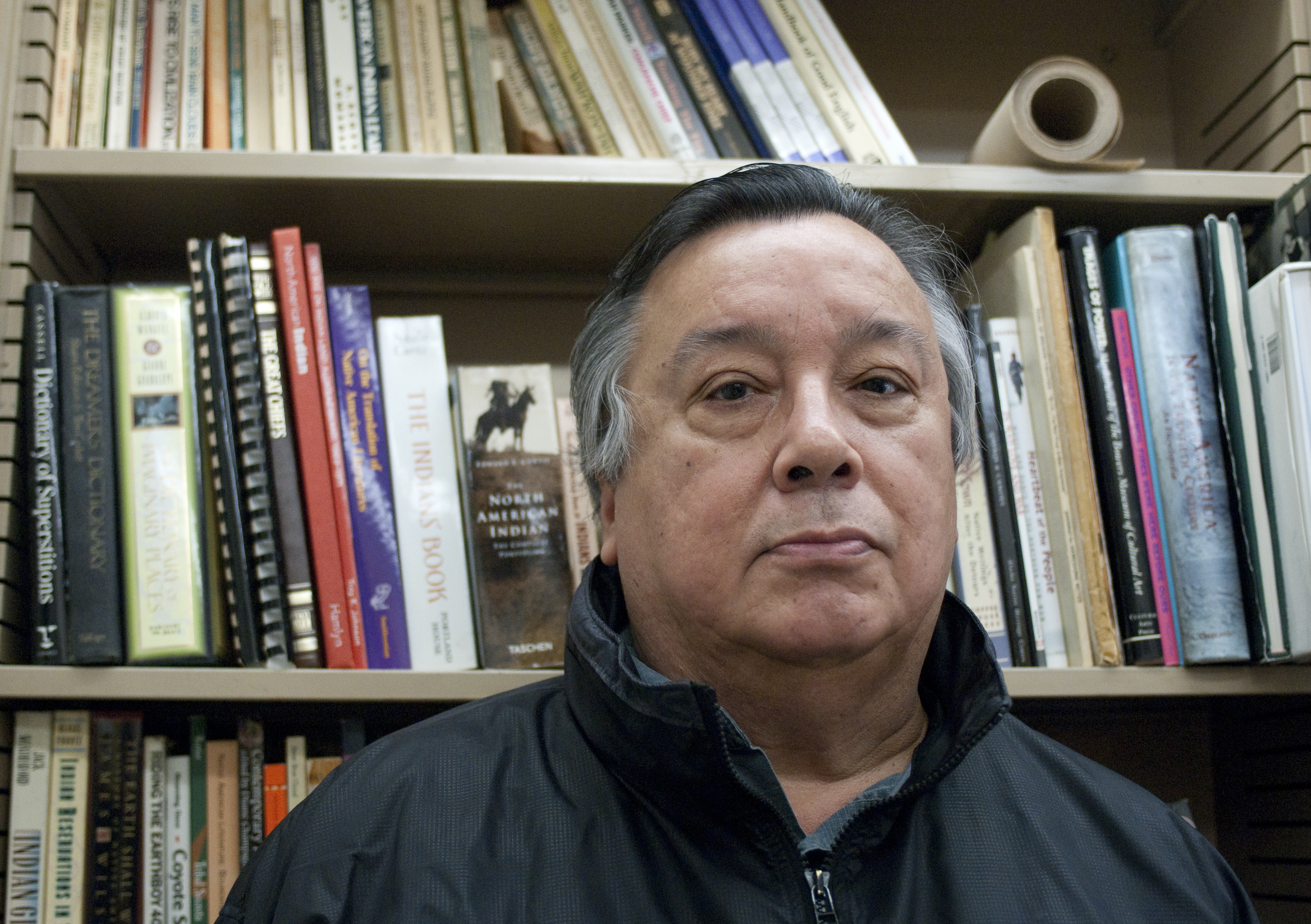Theater Professor Hanay Geiogamah is one of eight Native American faculty members working at UCLA.
For Geiogamah, the ability to research and produce texts about American Indians is the strength of working at UCLA.
But with concerns about the immediate financial state of his department, Geiogamah has been forced to put aside projects that he hoped to develop at the university. An American Indian theater course that would be teleconferenced with tribal colleges is one such project. A multi-ethnic theater institute is another.
“Your ethnic identity gets lost in some of this blur of activity and commitment and responsibility,” Geiogamah said. “Right now there’s not a whole lot of time to focus on ethnic-specific concerns because everybody is trying to keep the ship afloat.”
Women and faculty of color reported being most burdened by budget cuts and the effect they had on their personal and professional lives, according to the 2010-2011 Faculty Welfare Survey conducted by the UCLA Faculty Welfare Committee.
Minority faculty members reported more often the expectation that they will be targets of recruitment and retention efforts by other universities ““ something the committee fears will put the diversity of the UCLA faculty in jeopardy.
Christine Littleton, vice provost for diversity and faculty development, said there are a wide range of stressors unique to women and faculty of color that can potentially affect retention. One stressor is time. Minority faculty members are in high demand for committees because they possess a diverse perspective, Littleton said. In turn, minority faculty members want their perspective to be heard, she said.
This can lead to faculty feeling undercompensated for their time and effort, however.
“Because we have much smaller groups of people of color, they are asked to do so much more service,” Littleton said.
This is a familiar situation for Geiogamah, who also serves as an affiliated professor for the American Indian Studies Center and on numerous theater department committees. “You want to add your point of view. You want to see if there’s anything in it that can benefit something that you may have of interest in your ethnic field of studies and concerns,” Geiogamah said. “You have to be involved.”
These extra commitments can affect morale when faculty members feel they are underpaid for the amount of time they give to the university, Littleton said.
Women in particular progress from associate professor to professor at a slower rate than their male counterparts, and these promotions are most associated with increases in salary. This may leave women vulnerable to offers from other campuses where salaries and amenities are more competitive, Littleton said.
In one instance, UCLA lost a professor to Princeton because the university could offer her children free tuition, she said. “My theory about retention is that it starts when you hire,” she added. “If you wait until someone has an offer, it’s too late.”
This includes hiring at a level that better represents the demographic pool of degree holders.
Over the past five years, UCLA has hired 36 percent women and 33 percent nonwhite faculty members campus-wide ““ an under-utilization of qualified women and minorities in many recruiting areas, according to the UCLA 2011-2012 Academic Affirmative Action Plan. The plan, prepared by the UCLA Faculty Diversity and Development office, outlines the academic senate’s efforts to meet federal affirmative action requirements.
The UC-wide average for females hired at the assistant professor level is 40 percent. This is closer to the size of the national hiring pool, according to the 2011 Accountability Report by the University of California.
Women and minority faculty seem to be most concentrated in departments most affected by decreased funding, said Belinda Tucker, vice provost of the Institute of American Cultures.
Those departments are the humanities and social sciences, especially programs that are young and lack large external funding.
“The economic impact of the budget cuts will not be felt by those who have a lot of money and a lot of support,” Tucker said.
The American Indian Studies Center, with which Geiogamah is affiliated, lost between $50,000 and $60,000 from the operating budget as a result of increased costs associated with changes to the UC retirement plan, Geiogamah said. The depleted operating budget has made it more difficult for the center to support its graduate division, with less money to offer teaching fellowships and research dollars.
Geiogamah said he cannot see a time in the near future when UCLA will be able to provide the kind of support that professors were once used to having. Focusing on that is not something he said he finds productive, however.
“The more you think about that, the more it can disillusion you or dispirit you if you let it,” Geiogamah said.
